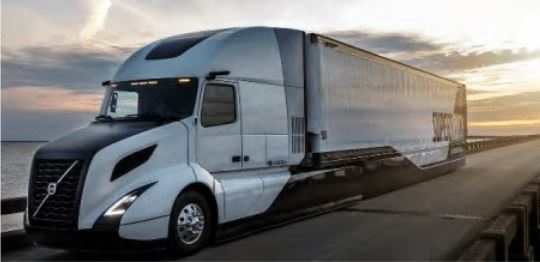SuperTruck 3 - Zero Emission Freight Future
START YEAR: 2022
COMPLETION YEAR: 2027 (estimated)
PRIMARY CONTACTS:
- José Holguín-Veras (PI)
- Cara Wang
- Sean He
- Jeffrey Wojtowicz
RESEARCH PARTNERS:
- Volvo Group
- Oak Ridge National Laboratory
SPONSORS/FUNDING:
- US Department of Energy

OVERVIEW
The SuperTruck 3 – Zero Emission Freight Future (ST3) project has the ultimate objective of developing a Class 8 battery electric vehicle (BEV) that meets the specific range, power, charging, energy, and cost requirements needed for effective introduction into the BEV market. By studying baseline conditions along the Interstate 81 (I-81) Corridor between Dublin, Virginia and Macungie, Pennsylvania, the team at RPI will determine likely use scenarios for BEVs – specific industry sectors, origin-destination pairs, etc. that will benefit the most from the use of BEVs. In addition to the I-81 Corridor, the team will study the baseline conditions within the boundaries of the Chattanooga – Hamilton County Regional Planning Agency (CHCRPA) – the metropolitan planning organization (MPO) for the Chattanooga, Tennessee area. This two-pronged approach allows for the development of corridor and vehicle choice models to evaluate these likely use scenarios.
Using the data from the I-81 Corridor, the team at RPI will combine previously studied Freight Origin-Destination Synthesis (FODS) techniques to develop a corridor freight model. FODS techniques use publicly available data as inputs to produce predictions of freight activity within a study area. A vehicle choice model, either econometric or supply-chain-based, will be developed in tandem with this FODS model. This vehicle choice model will work to support the analysis needed to design the proposed Class 8 BEV. To analyze urban delivery patterns, RPI’s Behavioral Micro-Simulation (BMS) model framework will be applied. The nature of the selected model frameworks for this project enables prediction of freight flow patterns and vehicle choice patterns under different economic and technology adoption scenarios.
ADDITIONAL INFORMATION
- Project Presentation from the 2023 USDOE VTO Annual Merit Review
- Project Presentation from the 2024 USDOE VTO Annual Merit Review
RELATED PROJECTS
- USDOE: Collaborative Approaches to Foster Energy Efficient Logistics in the I-87 Corridor
- USDOT: Off-Hour Delivery Program
